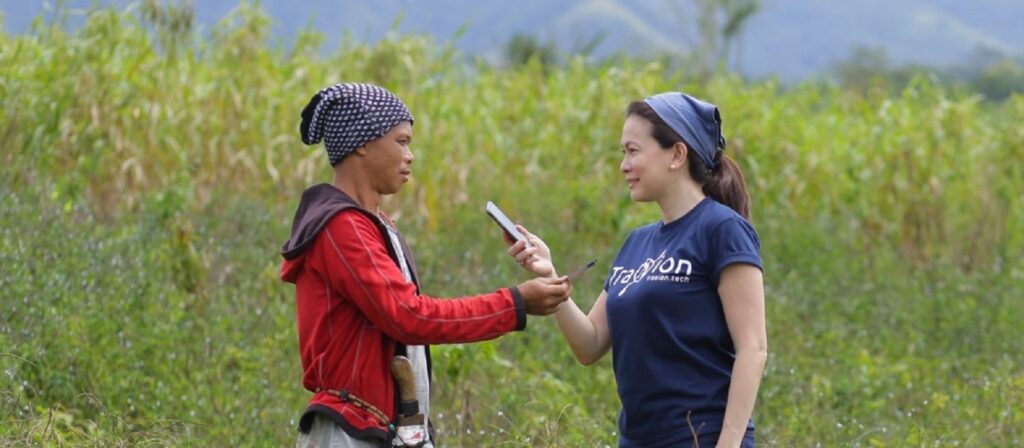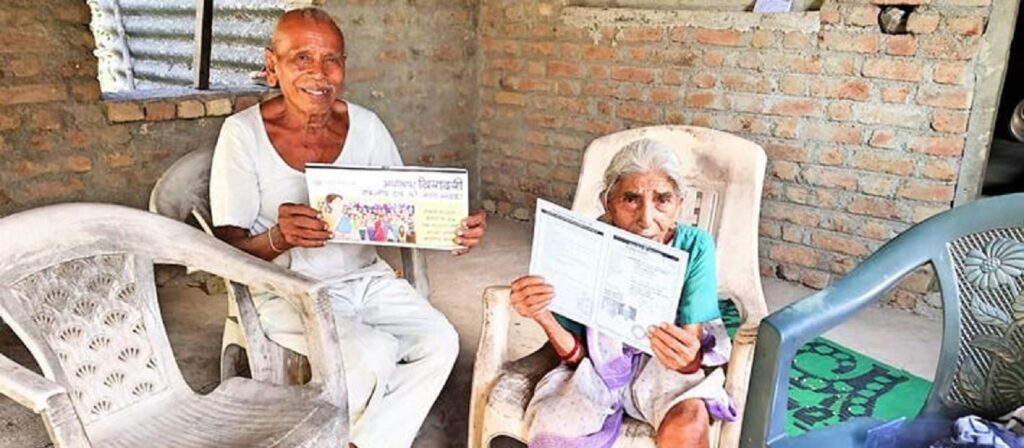Ben Telfer:
Hello everyone, and welcome to today’s ICMIF webinar, which is episode 10 in our The Digital Mutual webinar series, which looks at different ICMIF webinar members, and how they embrace digital transformation in their pursuit for digitalizing their businesses.
Today, we feature the case study of 1CSIP in the Philippines, and today’s webinar is entitled, “Beyond financial inclusion: How 1CSIP is revolutionizing the way Filipinos cooperatives serve their members through digitalization”. I’m very pleased to introduce from 1CISP, Jackelyn Ballena and Honey Daba. Jackie is VP of operations for life, and Honey is the 1KIN program specialist. Jackie, Honey, very pleased for you to join us today, and I’ll hand over to you, Jackie, first.
Jackelyn Ballena:
Hi. Thank you so much Ben. Wonderful day everyone. So, allow me and my co-presenter to share with you today, how 1CISP is creating a future with cooperatives here in the Philippines, especially during this COVID-19 pandemic. And hopefully this initiative of ours can be expanded later on. So, for today’s presentation, I’ll briefly introduce to you our cooperative, 1CISP, and the Philippines digital and financial inclusion context. To lay down that ground of our initiative, the digiCOOP, the said initiative will be the meat of our presentation and discussion today, and we’ll close it later with a summary of our takeaways. To start off, 1 Cooperative Insurance System of the Philippines Life and General Insurance, it’s very long, so you can just call us 1CISP. We are a comprehensive insurance based here in the Philippines and has been serving the Filipinos for the past 47 years.
1CISP, just a brief of history, was organized in 1974 to promote and engage in life insurance services as a cooperative. But in 2018, 1CISP was given its authority to become a life and non-life insurance cooperative, as it acquired a non-life company to provide non-life services for our members. At present, 1CISP is operating nationwide in the Philippines with head office based in Metro Manila, one branch office in Mindanao, and more than 15 satellite offices across the country, insuring mostly the farmers and the low income sector of the country. In terms of our direction, 1CISP envisions to insure 3 million Filipinos by 2025. And with a mission that 1CISP be a viable and socialized cooperative insurance service, that protects and empowers Filipinos, especially those who have less in life, and to be able to ensure that 1CISP vision and mission.
Values of 1CISP, as you can see there, commitment to reliability, under-promise, over-deliver, mutual prosperity, and excellent service, are always emphasized among our board of directors, management and staff, agents from policy formulation to delivery of service. Currently, we already have 2,962 member cooperatives, as of December 2020. And 1CISP member cooperatives are a mix of small, medium and large cooperatives in the Philippines, of different types. So there are agrarian cooperatives, consumer cooperatives, co-op banks, credit cooperatives, electric cooperatives, health services cooperatives, multipurpose cooperatives, producers co-ops and others. 1CISP also have a wide range of products for both life and non-life.
Our life insurance products focuses more on group life insurance coverages for principal members of cooperatives and some products include coverage of their dependents. Our non-life insurance products are varied as well. You have miscellaneous, casualty insurance, motor car insurance and other non-life insurance products. Despite the pandemic, in the year 2020, 1CISP was able to launch four new products, both from life and non-life. And one of the interesting products that we launched last year is our YES product, youth and elderly shield, wherein, to be insured beyond the standard eligible insurance age. Promotion of this new products have been possible with the use of technology. Given 1CISP’s direction in the pandemic that happened, 1CISP created the digiCOOP initiative.
Initially, it is a platform where 1CISP can interact with its member co-operatives on various insurance transactions. But as you can see later, this has evolved as a platform for cooperatives, not just to interact with 1CISP, but with other cooperatives also. A small step of ours in living the six core principle, which is cooperation among cooperatives. It is our firm believe that this small step will to unite cooperatives in the Philippines. Prior to the details of the initiative, let me give you a backgrounder of the Philippines financial and inclusion context. The data would show that transforming digitally is not our only option right now, but it is a necessity for everyone if we want triumph and be better in what we do.
First, as you see in this screen, in terms of widespread use of internet in the Philippines, among the 110 million population in the Philippines, 67% are internet users as of the data in January 2021. And the data also show it’s very interesting because there’s been a huge jump in terms of usage on mobile phone, from 65% in January 2019. So 98.5% in January 2021. Same goes to the usage of laptop and desktop, from 38% in January 2019, to 77.3% in January 2021. And as we know, this increase has a huge impact of the increase in mobile usage and the laptop and desktop usage as well.
In terms of the daily average spent of Filipinos, the increase is not really that much, because in January 2019, it’s been 10 hours 2 minutes, while in January 2021, it’s 10 hours and 56 minutes. What’s very interesting is the increase in terms of number of internet users who have purchased products online. In January 2019, it’s only 70% and it jumped to 85.7% in January 2021. Interesting as well, on your left, you’d see that top 10 mobile apps being used here in the Philippines, and two of which is an e-commerce platform, Lazada and Shoppee, where you can buy clothes, you can buy food there also. They have really evolved also during the pandemic. Plus, included in the top 10 is an online payment platform, which is GCash.
In terms of formal account and ownership, it’s still low, it’s 23%. Although, there is a jump from 23 to 29%. Interesting is that e-money accounts, it has increased from 1.3% to 8.1%. But this data is from 2017 to 2019, given the lockdowns that happened. It is expected that in the 2020 data, this is higher than 8.1%. As we can see the widespread use of internet and technological innovation pave way for digital payments to become more accessible and affordable and essential as physical distancing becomes the norm.
In terms of insurance, penetration rate is still very low. It’s just 18% in 2017, although there is a growth, from 2017 to 2019, it increased to 23%. It’s still not yet 50% of the Filipinos being insured. So, why is that? Why 77% of Filipinos didn’t have insurance, the answer for that one is that they don’t have enough money. It’s not a priority among Filipinos to really update their insurance policy. They feel that it’s not needed and they feel that the cost of insurance is very high. And we are seeing, because of the pandemic that social media plays a vital role in educating, especially the young ones, in terms of the value of having insurance policy.
So let me walk you through, in terms of the numbers of cooperative members here in the Philippines. They’re around 11.6 million cooperative members in the Philippines. These people do transactions mainly over-the-counter or via traditional media, such as email, SMS, or through phone calls. And among those, as mentioned, we have 1.46 million co-op members right now, that’s 12.6 penetration rate. Still not yet that high, we are still aiming for more as mentioned earlier. By 2025, we would want to insure 3 million Filipinos. Of these, 70% of the policy holders are actually outside the Metro Manila, which is, Metro Manila is the capital here in the Philippines. So there’s a lot of growth outside Metro Manila. And 1CISP, as mentioned, we’re targeting 3 million by 2025.
So, that’s just a brief background of 1CISP and how we are actually doing in terms of financial inclusion, the financial data that I’ve shown you. So I’m going to turn over now to my co-presenter, Honey Daba, to discuss to you how 1CISP is actually digitally transforming its cooperatives to be future proof ready. And as our president says, with this initiative, we will act, show, and do. Thank you so much everyone.
Honey Daba:
We have seen the context in the Philippines, in terms of the technological advances or the innovations that we have here, as well as the financial inclusion. Now, with that context and in order for 1CISP to achieve its vision and also its mission to provide service to its stakeholders, it has taken advantage of both the widespread use of internet, as well as the fast growing fintech innovations available, and thus the digiCOOP initiative was conceived. Now, the digiCOOP which is developed by TraXion Tech Inc, that is our tech partner, is a free web-based platform for co-operatives, it aims to redistribute Philippine… Well, within the Philippine industry rather, using technology by enabling big or small co-ops and their individual members to participate in this lively digital ecosystem that we offer.
It aims to digitally empower all cooperatives by introducing Philippines’ latest digital platform, and that is, the digiCOOP. So on your screens, you see the rationale of why we have this initiative or what we call the ABCDs of digiCOOP. So, it aims to attract the tech savvy generation to the cooperative movement and to cement the co-op legacy. And we also want cooperatives to be better than investor-owned firms and companies. And we also want to create more opportunities and to keep the money within the sector, and also to drive the increase of patronage from our members and by serving our members better.
Before we go into the details and the features of the system, I want to show you how digiCOOP came about. And as you can see, it was not too long ago when we started this whole project, it was in early 2019 when 1CISP made a seed investment of USD 2 million to TraXion Tech Inc. So this is a Filipino tech company that specializes in banking operations, artificial intelligence, cyber threats, security management, internet marketing, and the like. And in April 2019, 1CISP and TraXion Tech team worked together to start the ideation of a system that would not just help 1CISP, in terms of their internal procedures or their processes, but more importantly, to improve the operations of cooperatives. And just last year, April 2020, the digiCOOP platform was launched, and to drive awareness and to increase number of users, an insurance promotion was actually offered by 1CISP, together with the launch, and it’s a free COVID-19 insurance coverage.
So all of the co-op members who would open a digiCOOP member account, and this enticed about a hundred cooperatives to onboard the free platform within 10 days, despite the nationwide imposed lockdown. And this is considered a feat or one of the very first milestones of digiCOOP. Now, since the rollout, so many developments have followed, such as the growing number of cooperatives who has joined the initiative, as well as new partnerships with the pertinent institutions, as well as being onboarded in the system. To keep the digiCOOP system running efficiently, TraXion Tech, our partner, made sure that it complies with the regulation or the accreditation or certification requirements, and its technology stack are chosen well to keep the systems running smoothly. And it has also partnered with technology institutions, they’ve been tapped to provide comprehensive spread of services that is useful to the co-ops and the members alike.
DigiCOOP is a unified co-op platform, where it can be accessed in different gadgets. As you can see on your screens, it can be accessed through the laptops or the personal computer, through their web co-op banking. And if you have hand smart gadgets like the smartphones and the tablets, you also have the mobile co-op banking apps. And just last year, July, it rolled out its table top kiosk where it can be stationed in any of the co-op offices, even branches or shops. This rollout changes actually the service design approach of co-ops. Where the co-ops have offered more convenience points for their visiting members, there is now a cutting of queuing time in the co-op offices, as well as for the co-op personnel, there’s also a reduction of man hours in servicing members, with the utilization of the digiCOOP platform.
These are the systems available in our digiCOOP platform. So there are four. So I will discuss first, the first one, which is the cooperative management system. So this is the system wherein the co-op has an online dashboard to easily manage their business processes, their members modules, events, transactions, and others. So as you can see, it has a lot of functions like the electronic customer registration, wherein they can now have a digitalized database of all of their members. They have members module wherein, they can view the information about their members and also their members can enroll to digiCOOP, and also register themselves as agents of digiCOOP. So, once the co-op approves these members to become agents rather, they can transact using the digiCOOP platform on behalf of the co-operative.
We also have here the loan application function. So, this makes rather the loan application process easier and more convenient, since it’s done now online, the members do not need to go to the offices to fill out a number of forms, just to avail of the credit products of the co-op. We also have the digital marketplace. So for this one, it functions like an Amazon for co-operatives, where co-ops can display their products online, and this will allow their members, even new costumers, or other cooperatives to purchase their products online.
We also have the election module, which is, I think one of the highlights of the co-op management system. We can use this module in voting for the co-op leaders, like the board of directors, or voting for important co-op affairs, or if there’s a decision that has to be made by members, they can use this election module. And with this, there’s no need to gather in one venue for us to vote, members can vote in the convenience of their homes or even if their offices… And voting now is made more systemized, it’s secure, and members may know of the results of the voting real-time and that is guaranteed. We also have events registration, and e-learning. So, instead of the physical registration that we used to do, or going to a venue to attend some trainings or education forums, this may be done now, or may be conducted online.
For the co-op management system, we have big data analytics, so, co-ops now can generate monthly reports. They can use business analytic tools available in other database, so that they may be guided in their business decisions. Another system is the payment system. So, for the payment system, as you can see, you have a bills payment, there’s money remittances, there’s transferring of funds. So this can be done now through the digiCOOP platform. The payment system is connected to over 40,000 payment centers here in the Philippines, as well as 1,700 billers. So this will now give the convenience for our members to do their bill payments or their money transfers online.
We also have a special system, the core insurance system, wherein, our members, or even our co-ops can buy and sell products through 1CISP’s 1KIN program, and I will be discussing that a bit later. Also, with the core insurance system, there’s now automation of commission payments, and there’s also electronic policy generation. With that, this really improves user experience, in terms of transacting for their insurance needs. We also have the core banking system. As you can see, the core banking system is in a different color, it’s color green. It is an optional system that the co-op can avail if they want a seamless experience from their front end down to their backend operations. So, the DX banking, the digiCOOP’s DXBank, is actually a next generation core banking system for co-op banks and primary credit cooperatives, and this allows these type of institutions to provide quality banking services to the lower income member group of our co-op.
In the previous slide, I have mentioned about the four insurance system, and that we have incorporated our very own distribution channel, which is called the 1Kooperative Insurance Network. So, 1Kooperative Insurance Network program is actually a partnership between a cooperative and 1CISP, wherein, we’re going to introduce insurance as one of the product lines of the cooperative, and this will make the cooperative a more inclusive financial service provider to its members. Now, the vision of the program is to empower our own partner co-ops in delivering their own affordable and reliable risk protection program, as well as financial literacy drive to their own members. The framework of the program is that we’re going to utilize the network of members, that our partner co-ops have, and the digiCOOP will be the management system to make transactions more convenient and easier for co-ops and members alike.
We talked about the features of the platform, that mostly benefit the co-ops and the members, and for 1CISP, digiCOOP serves as a gateway to its backend operations. Its rollout has activated patronizing and transacting co-ops or members as part of the value chain. digiCOOP is used as a front end, especially in policy issuance, insurance reminiscence reporting. We also have premium payments. So all of these is part of the front end procedure. Now, these mentioned processes that we have, that used to be handled by 1CISP personnel, but with digiCOOP, these are now done by the co-op and members themselves. And these transactions made in the digiCOOP app are connected and taken into our backend or our core insurance system. So, overall with the use of this technology, the operations that we have at 1CISP have been streamlined. Some tedious manual steps have been eliminated. So, first, it got the turnaround time and we have minimized also human errors and service has collectively improved.
You can see on your screen, an example of streamlining of one process in our backend, and this is the remittance reporting. And as you can see here, from our manual procedure of about nine steps, it has been reduced into six with the use of digiCOOP. So there are other processes that have been streamlined, because of the use of digiCOOP. So, other operational procedures that have been improved due to the use of digiCOOP are the following. So from underwriting, we have automated validation of insurance coverage. We have electronic confirmation and that there are notices to cooperatives as well. We have, for policy issuance, there’s now more convenience in issuing the policies, and we’ve provided more avenues to pay premiums. So, aside from our usual cash payments or check payments, we have added more online options for payment.
We have claims, because of some steps that have been automated in the system, there’s now a faster payout of claim benefits. For renewal, we have automated renewal notices and our prompts to our member and co-op accounts. And for the overall customer engagements, we have added customer dashboards, up-to-date announcements, report generation and data analysis tools. So, this is not just useful for our outside customers, but our inside customers who are our personnel. These are really helpful to them, in deciding and improving their services. Still here? Hello.
Another feature that is valuable to our stakeholders is the digiCOOP e-vault, this ensures security of information within the digiCOOP system. So, to accomplish this, there is a blockchain layer employed to safeguard user personnel data, the electronic policies, and even the electronic wallets. So, basically, every information that we input in the digiCOOP platform are safeguarded with the blockchain technology. So, this is just to show you the 11 month run of the digiCOOP initiative. So, you see in the screen, the testimonies of our stakeholders, down from co-op, the members, and even from our sales team. And currently, even up to now, 1CISP and the TraXion Tech teams work together in educating and promoting digiCOOP to co-ops, especially in the rural areas.
The promotion drive is mainly to change the co-op’s mindset on the use of technological innovations to improve their services to their members. And there are some co-ops who have actually already appreciated the system, and they started using digiCOOP in their operations. Some have utilized it for the new income streams it offers, like the bills payment, the money transfers, the insurance selling, and some adapt to the system for their co-op store management. Now, despite the short run it has, in the middle of a national scale lockdown, digiCOOP has onboarded 3,731 cooperatives, of which 7% or 264 are active co-op accounts. And 122,000 individual members have opened accounts with digiCOOP. This is about 8.4% of the individual members insured in 1CISP. So, since the launch in April 2020, digiCOOP did not stop in improving their systems. Developments have been promptly and timely added to the platform, like the accounting software for small co-ops, the online credit scoring, the multiple banking touchpoints, and so much more. These developments really aim to ultimately improve the efficiency of co-op operations to its members.
What’s next for digiCOOP? Now, rationale to create more opportunities for the co-op sector and to further the movement or to make co-ops better than investor-owned enterprises. Its plans geared toward creating all in one co-op business centers where members can avail of the following services. So we have agriculture, logistics, supply chain, we have banking, fintech, insurance, and other products and services that we can offer in these co-op business centers. The ultimate goal again, of this pipeline projects, is that to drive the co-op economy by creating value and income in as many levels of economic participation. So, there’s the co-op, you also want to include the members and the other stakeholders that can benefit from this initiative. And to do this, digiCOOP will become the unifying system, to put all of these services together.
To end our presentation, we have a few takeaway points. So first, we’re going to go back to the context, which is the widespread internet use and the technological innovations, are actually the key factors in the financial inclusion in the Philippines. And with 1CISP, we want to take advantage of the expansion, in terms of financial inclusion and in terms of technological advancement. We have launched the initiative, which is the digiCOOP, to provide a digital economic… Ecosystem rather, that will disrupt and unite the Filipino cooperative movement. So this really aims to improve co-op operations through technological innovations and to unite the movement as a whole through this technology. And lastly, for the goals of this relevant and timely initiative to come into fruition, the buy-in of all stakeholders is imperative. 1CISP together with TraXion Tech, we have worked our best to make this initiative possible, and we have never stopped in rolling out all the value added developments that we can add to the system, and for co-ops, we also need the buy-in of the co-ops, we need the paradigm shift, because without the acceptance of our cooperatives, who are the most important stakeholders of this initiative, then this will not be successful.
And we admit that there’s a long way to go, in terms of digitizing our cooperative operations in the Philippines. And lastly, we also need the buy-in of our government, our regulators, because they can pass legislation to expand financial inclusion in the Philippines, as well as to support the improvement of infrastructure, to improve connectivity within the Philippines, especially in the rural areas where we identify as our market growth areas for the digiCOOP initiative. Okay. So, that pretty much sums up the digiCOOP initiative of 1CISP. Thank you for listening to our session today. Back to you Ben.
Ben Telfer:
Thank you very much Honey. Thank you very much Jackie. A really inspirational presentation there. The point there, how digiCOOP is really driving digital transformation, not just at 1CISP, but also how its aims for financial inclusion is something that is great to hear, as well as your aim to really digitally empower all cooperatives across the Philippines.
We do have a number of questions. Before I get to them, I just want to ask just a couple. You mentioned that digiCOOP was launched in April 2020, obviously the start of a pandemic, when the lockdown happened. Did you find that it helped or hindered the initial launch? Obviously it’s not the best circumstances to be launching a new initiative, but on the other hand face-to-face interactions have stopped, so perhaps people were moving more digitally anyway. Can you just say a bit about that.
Jackelyn Ballena:
Basically, the launch was done over the internet, and I think Honey can expand on it, because she is the one in charge of doing the launch of digiCOOP. But most of the launches were done online, via Zoom or other platforms, wherein, members are comfortable. So, Honey you can probably expand on that.
Honey Daba:
Months before the launch, when there was no lockdown, we have conducted seminars or overview sessions about the digiCOOP initiative. It was really planned to be lodged rather on April 2020, but then the lockdown happened. And what we really did was to do it online and to encourage members to sign in and to enroll in digiCOOP. We had a promotion, an insurance promotion where we were going to offer a COVID-19 coverage for those who will sign up with us. It was successful though, because in the Filipino culture, if you give something for free, they actually want to get the free stuff, and it actually served its purpose, because our co-op members who enrolled with us actually experienced also this system, and they are quite satisfied with what they have experienced.
Ben Telfer:
Talking about the free coverage that you offered, what did that entail?
Jackelyn Ballena:
It was like, if they enroll into the digiCOOP platform, they’ll have an additional benefits that is actually due to COVID-19. In Philippine peso, I think that was around 50,000. It was a big amount of it. And there were a number of claims because of that. And it was good that 1CISP was able to extend help, especially those who have been affected by COVID-19.
Ben Telfer:
Thank you Jackie. You mentioned about sort of one of the aims of digiCOOP is to attract the tech savvy generation, so younger customers. Do you have any data about how many of the 122,000 new members that you’ve got were of that sort of generation?
Honey Daba:
In terms of the age demographics of our co-op members in the Philippines, we don’t have very ready data, but we’re going to compare that to 1CISP demographics. Our insured members, the millennial age group actually has the biggest number. If that follows the demographics of the co-op sector, then it should also be similar. We’re expecting that in the co-op sector population there’s also a big chunk of millennial members.
Ben Telfer:
Thank you Honey. You mentioned as well the distribution of 1CISP products through cooperatives. What proportion of this are you targeting, do you think will be a proportion of products will be distributed through the 1KIN network. Do you have any targets in mind? What are you at, at the moment?
Jackelyn Ballena:
Right now, there are limited number of products in the 1KIN program, because it’s just an initial rollout, not all the products that I have presented earlier. We have a number of products for life and non-life, and they’re more than 10 each, for both lines. And we have rolled out only few number of products to test first, for the cooperatives, for the 1KIN program. We have actually started on the non-life side, because it’s much more easier to launch that one.
Ben Telfer:
And do you have any targets about what proportion of your overall premiums will be distributed through this channel or there are no targets at the moment?
Honey Daba:
As you can see in the 1KIN program, all of the products there are individual products, so they are easily dispensed through online channels. So, for targets, since it’s a start up, relatively it’s a startup, we don’t have much expectation of what will be the reaction of our users, if we put this interest products up online. But we’re expecting that there will be a turnout once our members experience the convenience of the system. And once they recognize that it’s quite convenient to get it done online, then I guess that’s the time that we will really put a hard target on the insurance products available in the digiCOOP platform.
Ben Telfer:
Very good. I really appreciate that it’s a new initiative, so it’s kind of hard to see how you can benchmark that. A question here that has come in. Are you worried at all that the digital interactions that once 1CISP will be having with your members, you’ll lose that personalized and that proximity to the customer? Or, is this just something that you have to adapt to, for the convenience in the digital world?
Jackelyn Ballena:
The digiCOOP platform, we didn’t abolish our other distribution channel, which is our agents. So, those who handles our cooperatives still have agents. So they are the ones who actually… The touch point of our cooperatives. So even if they are already into the digiCOOP platform, it’s more on the transactional aspect. But in terms of the relationship, we are still able to build our relationships with our members through our agents.
Ben Telfer:
How do the agents feel about the new platform?
Jackelyn Ballena:
It’s actually more positive, because it would be easier for them, in terms of transactions, in terms of remittances later on, in terms of releases of claims, they’ll be able to monitor into their own dashboards. They don’t have to call us, “Oh, what’s the status of this one? Is my commission already good? So, those will be eliminated. So I think it’s more on the positive side. Plus, we didn’t have any reduction as well on their commission, so I don’t think it would be a problem there.
Ben Telfer:
I’m sure it won’t be a problem because no reduction on that. Another question. You mentioned, just at the end, Honey, about the regulatory issues that they could have, and perhaps you could just say a bit more than that, what sort of regulation is coming in that would help or hinder the distribution of these products.
Honey Daba:
In terms of hindrance, I guess there’s none, since we have complied with the regulation and the accreditation requirements. Mostly, the regulation is for the payment system, which is what we call the traction fee. So that is actually the system that receives the payments, sends out the payments. So, we made sure that we have all of the necessary requirements, to have it up and going. And if there’s any hindrances, in terms of the initiative, I guess it’s more of the infrastructure rather than regulation or legislation, because in the Philippines, there’s a long way to go in terms of the infrastructure that we have to connect everyone, like have the internet service at home, it’s not reliable in the rural areas or the far-flung areas in the Philippines.
Ben Telfer:
Thank you Honey. You mentioned your fintech partner, TraXion Tech that you’ve been working with for two years now. Obviously, it’s been a successful partnership, in terms of the launch of this product, but has it helped in any other areas of the business? Jackie, perhaps you can answer that one. Anything that’s happened, some of the learnings or new talent, has that that helped transform the rest of the 1CISP business?
Jackelyn Ballena:
It’s been very helpful especially during the pandemic. Right now, we’re still finishing the internal parts system of 1CISP, so that it could be easy. And it’s been a learning point for both sides. On TraXion Tech, I think they’re learning more in terms of insurance, how the insurance business works. In terms of us, on how to make our streamlined, because we have this, one, two, three up to 10, and then how we’re going to make it just like a one, two, three, four steps. So I think that’s one.
And let me just add Ben, earlier on the question, in terms of touchpoint with our members. Although there’s digiCOOP platform, 1CISP still continues to be in touch with its members through its various programs, wherein, there’s still like Zoom things for our members, so that we can hear their voices, in terms of their feedbacks and also to update them. So just, this coming April, we’re still going to hold our annual general attendee online. So our numbers will still be updated, of the current status of 1CISP. Last year, although it’s pandemic, we were still able to do our other programs and we did it regionally, and then now we talked to our members, presented to them our financial status and the different programs at 1CISP. So, we still believe that it’s very important to have that relationship and touchpoint. Although there is this technology on the other end, the relationship is still very important and we have to communicate with them.
Ben Telfer:
Excellent. Thank you Jackie. That actually fits in quite nicely to our next question, that has just come in about, is there a specific approach for those low income communities who are not so tech savvy and who are into the hard to reach areas?
Jackelyn Ballena:
If they’re not tech savvy, I think right now the laptops have been a bit relaxed already, so we just have to practice necessary safeguards, social distancing, so that we’d still be able to connect with them. Some of our agents are actually visiting some of our cooperative events already. But we have tried to do most of our transactions and meetings online, for the safety of everybody.
Honey Daba:
To add on that, this is why we also rolled out digiCOOP kiosk, table-top kiosk rather, so that if members do not happen to have smart gadgets, they can still do the convenience of transacting with the digiCOOP platform, using the table-top kiosk, but they’re found in the co-op offices. But this will reduce queuing time in the co-op office, instead of lining up to the teller or to a window, to avail up the service, they may do so with a table-top kiosk.
Ben Telfer:
Thank you Honey. I think we’re going to have to end there. Thank you so much Jackie, Honey, for joining us today. Really amazing presentation and thank you for those answers to those questions.
The above text has been produced by machine transcription from the webinar recording. ICMIF has made every effort to ensure that transcriptions are as accurate as possible, however, in some cases some text may be incomplete or inaccurate due to inaudible passages or transcription errors. Listening to or watching the webinar recording will allow you to hear the full text as delivered during the webinar but this is available in English only. Our transcriptions are provided to enable members to select the language of their choosing using the dropdown menu above.





